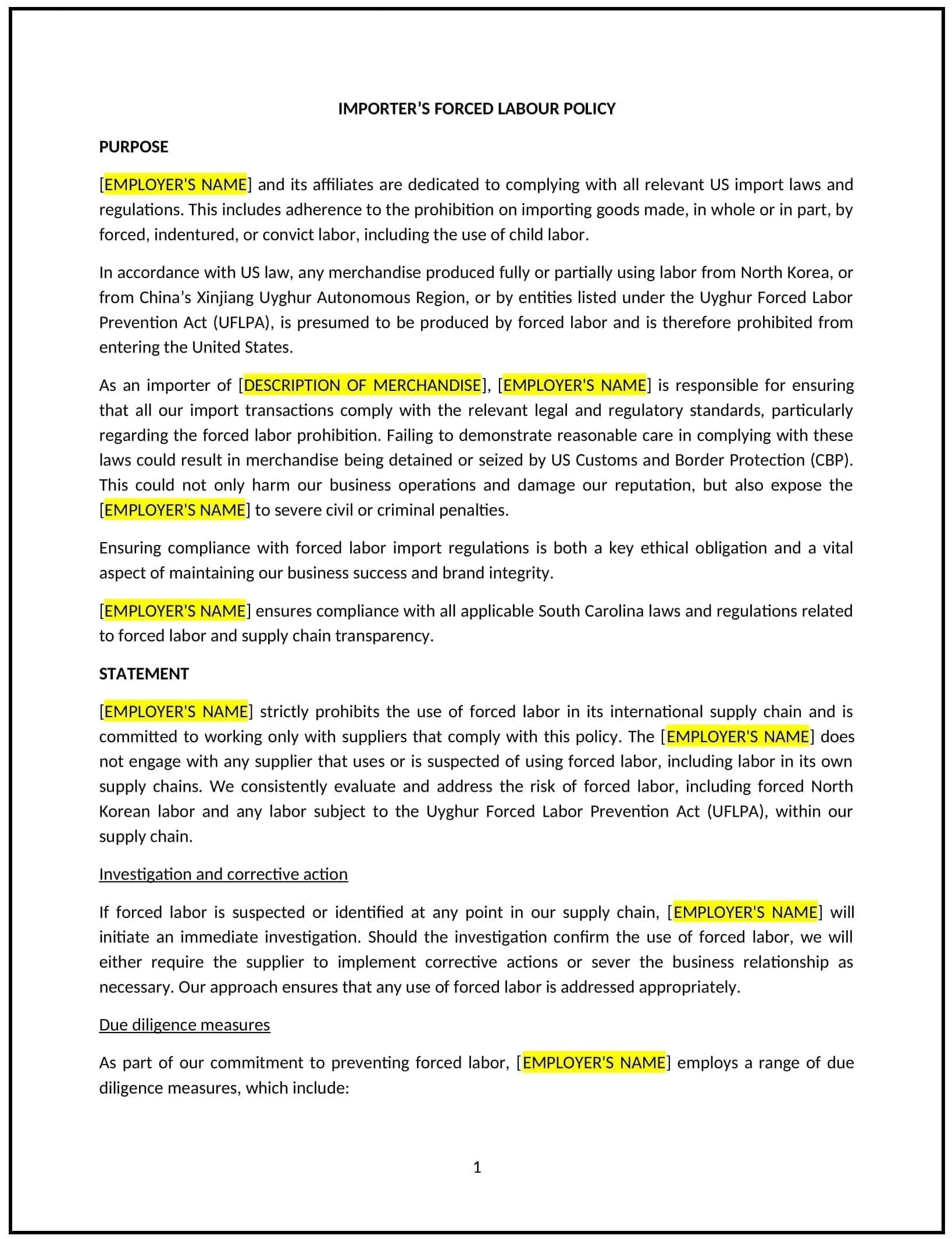Importer's forced labour policy (South Carolina): Free template
Got contracts to review? While you're here for policies, let Cobrief make contract review effortless—start your free review now.

Customize this template for free
Importer's forced labour policy (South Carolina)
This importer's forced labour policy is designed to help South Carolina businesses establish guidelines for ensuring that goods and materials are sourced ethically and free from forced labour. It outlines procedures for vetting suppliers, conducting audits, and complying with federal and international regulations.
By adopting this policy, businesses can promote ethical sourcing, reduce legal and reputational risks, and align with global standards for human rights and labour practices.
How to use this importer's forced labour policy (South Carolina)
- Define forced labour: Explain what constitutes forced labour, including child labour, debt bondage, and human trafficking.
- Establish supplier requirements: Outline expectations for suppliers, such as adhering to ethical labour practices and providing transparency.
- Conduct due diligence: Implement procedures for vetting suppliers, including background checks and audits.
- Address non-compliance: Describe steps for addressing violations, such as terminating supplier contracts or reporting to authorities.
- Train employees: Educate procurement and compliance teams on identifying and preventing forced labour in the supply chain.
- Review and update: Assess the policy annually to ensure it aligns with evolving regulations and business needs.
Benefits of using this importer's forced labour policy (South Carolina)
This policy offers several advantages for South Carolina businesses:
- Promotes ethical sourcing: Demonstrates a commitment to human rights and ethical labour practices.
- Reduces legal risks: Helps businesses comply with federal and international regulations, such as the U.S. Tariff Act and the UK Modern Slavery Act.
- Protects reputation: Minimizes the potential for reputational damage associated with forced labour in the supply chain.
- Aligns with global standards: Supports compliance with international frameworks, such as the UN Guiding Principles on Business and Human Rights.
- Builds stakeholder trust: Shows customers, investors, and partners that the business prioritizes ethical practices.
Tips for using this importer's forced labour policy (South Carolina)
- Communicate the policy: Share the policy with suppliers, employees, and stakeholders.
- Provide training: Educate procurement and compliance teams on identifying and preventing forced labour in the supply chain.
- Monitor adherence: Regularly review supplier practices and conduct audits to ensure compliance with the policy.
- Address issues promptly: Take corrective action if forced labour is identified in the supply chain.
- Update regularly: Assess the policy annually to ensure it aligns with evolving regulations and business needs.